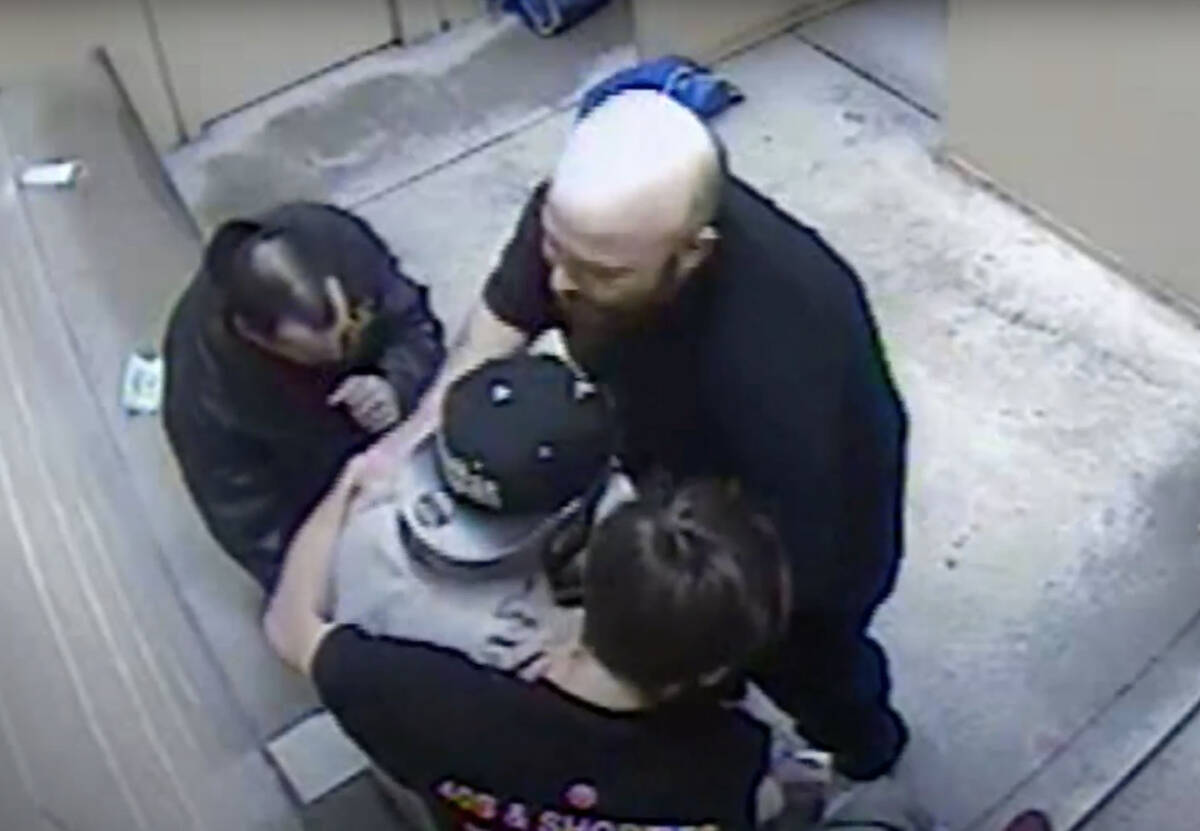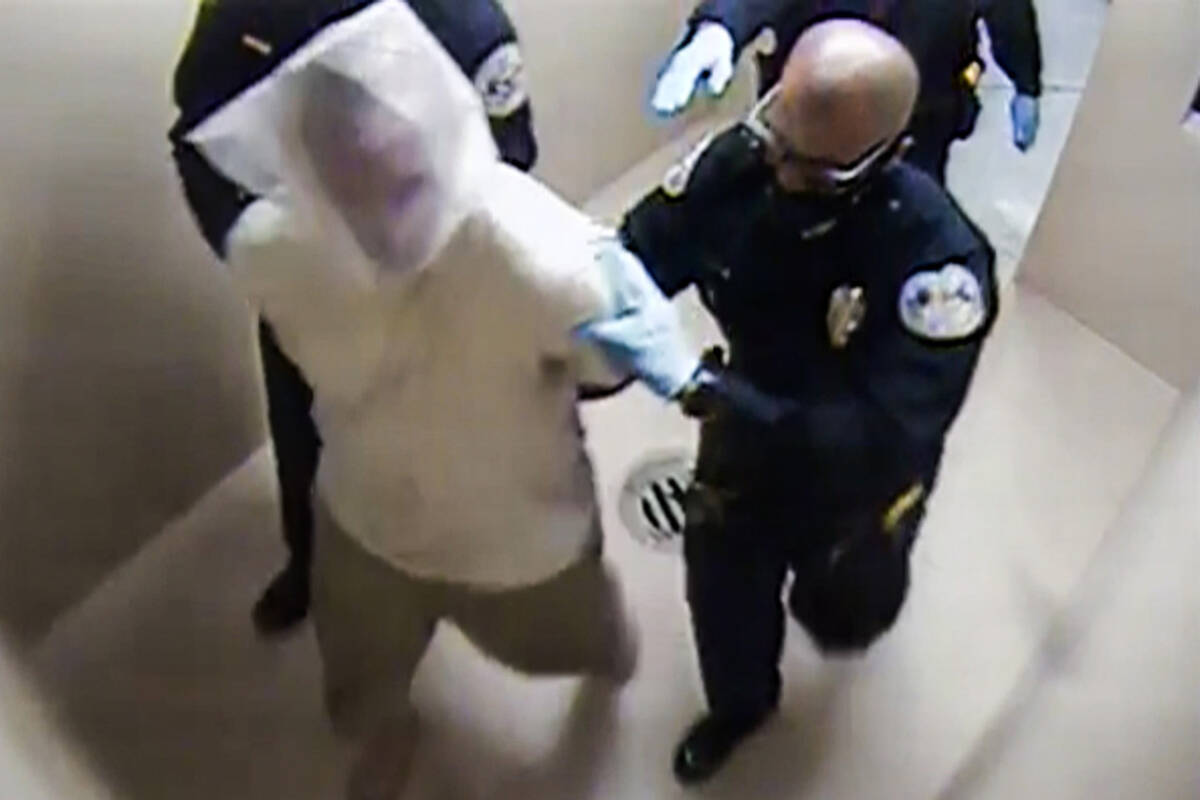Judge denies Review-Journal motion to dismiss union lawsuit
A Henderson judge ruled Thursday that a police union lawsuit that sought to force the Las Vegas Review-Journal to take down or obscure a video on its website can proceed.
The Nevada Association of Public Safety Officers sued the Review-Journal after the paper declined to remove the video or blur the officers’ faces. The video was part of an investigation into jail overtime and showed officers sometimes violating policy and making mistakes on duty.
The exclusive jail surveillance footage and photos were posted with the story, and the union claimed those violated state law prohibiting the release of photos of police officers. The Review-Journal maintained the statute only applied to law enforcement agencies releasing the photos.
The city of Henderson joined the union in the lawsuit soon after it was filed, but later agreed to pay $20,000 of the newspaper’s legal fees after a judge ruled that the paper did not have to take down or alter the videos.
The newspaper filed an anti-SLAPP special motion to dismiss, which is different from a standard motion. Under a standard motion to dismiss, the party filing it must show that as a matter of law the suit has no chance of success under any set of facts. In filing the anti-SLAPP motion, if the newspaper shows the suit is based on a public communication on a matter of public interest, NAPSO would have to show they have a probability of succeeding on their suit.
Judicial Officer Mark Denton denied the newspaper’s motion Thursday, allowing the case to go forward.
“Obviously, we’re pleased with it,” said NAPSO’s attorney, William Schuller. “We look forward to getting a substantive ruling as to whose interpretation of the underlying statute is correct. That remains to be seen but at the end of the day we’re confident that our interpretation is correct.”
Schuller said the union believes NRS 289.025 applies not only to law enforcement agencies but to “any individual or entity looking to publicize an officer’s personal information, home address or photo or video of that officer while they’re at work.”
Review-Journal Chief Legal Officer Benjamin Lipman said the newspaper disagrees with NAPSO’s interpretation of the law.
“The statute says that photos in the possession of a law enforcement agency are confidential,” Lipman said. “These videos were in the Review-Journal’s possession, so we do not see how this statute could apply to the Review-Journal. And if it did, we believe it would clearly violate the first amendment, which protects the right of anyone to publish lawfully obtained, truthful information.”
Lipman said the paper is weighing its next steps going forward, including an immediate appeal which is allowed under the anti-SLAPP statute. If the Review-Journal does not appeal this decision, then the case will proceed to discovery.
Contact Mark Credico at mcredico@reviewjournal.com. Follow him on Instagram @writermark2.
























